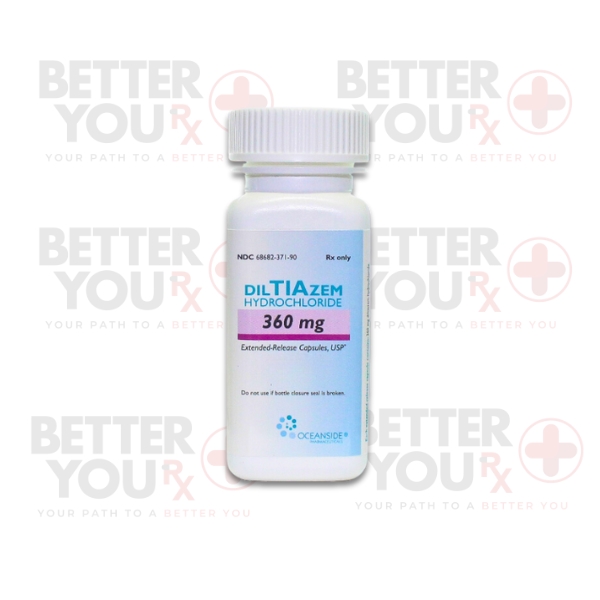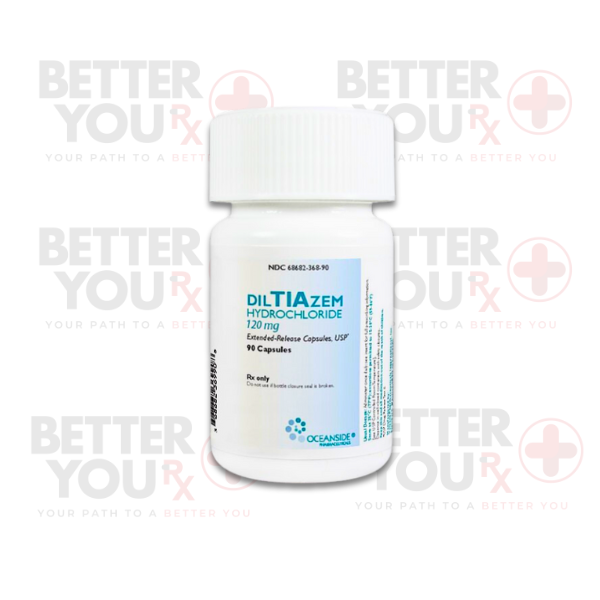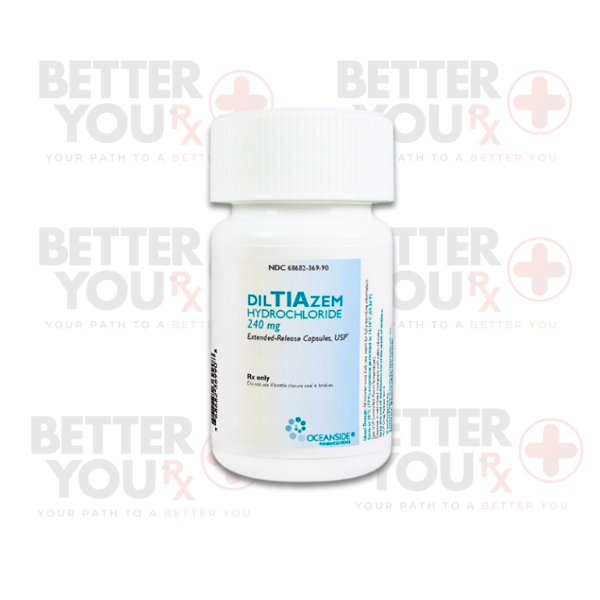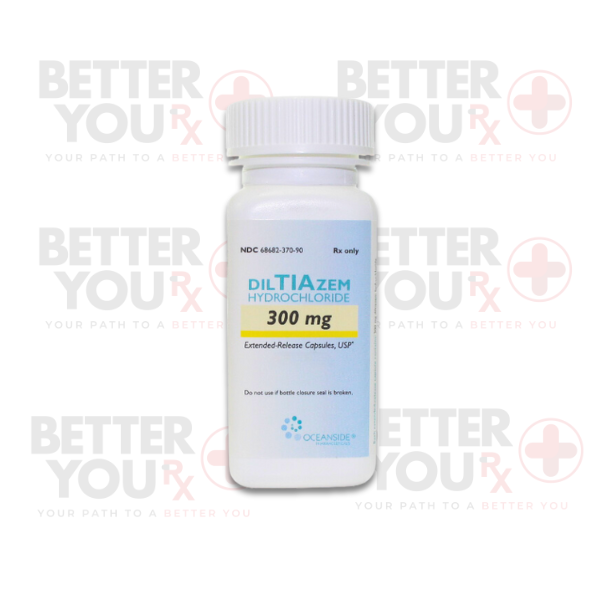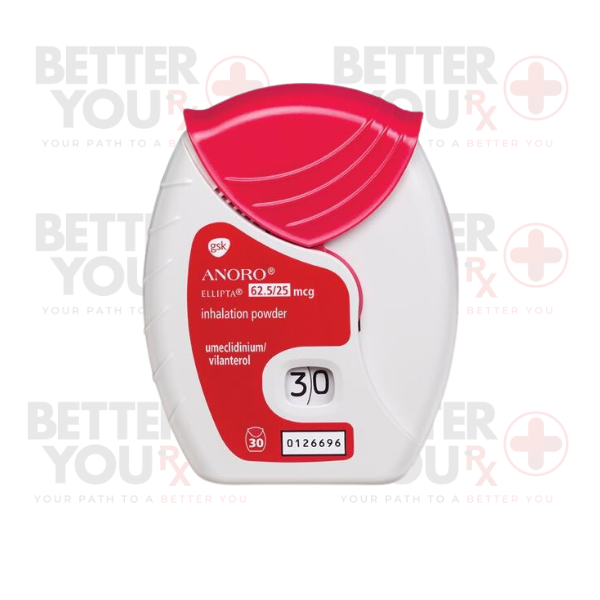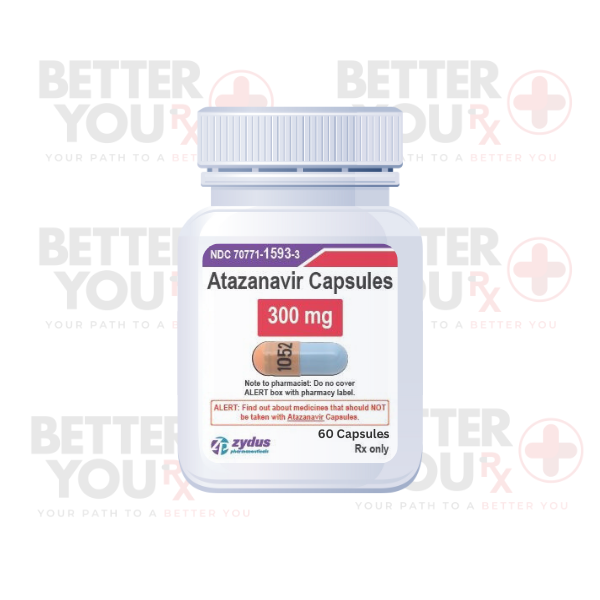| Uses of Diltiazem |
Diltiazem is primarily indicated for:
Hypertension (High Blood Pressure): Diltiazem effectively lowers blood pressure, helping to reduce the risk of cardiovascular complications, such as heart attacks and strokes.
Angina Pectoris: This medication can alleviate chest pain associated with angina by improving blood flow to the heart muscle.
Supraventricular Tachycardia: Diltiazem is often used to control rapid heart rates in conditions such as atrial fibrillation and atrial flutter, helping to restore normal heart rhythm.
Off-Label Uses: In some cases, Diltiazem may be prescribed for conditions like migraine prevention and Raynaud's phenomenon, although these uses are not FDA-approved.
|
| Benefits of Diltiazem |
Patients using Diltiazem may experience several benefits, including:
Effective Blood Pressure Control: Diltiazem is effective in managing high blood pressure, which can significantly reduce the risk of serious complications.
Reduction in Angina Attacks: By improving blood flow and reducing heart workload, Diltiazem can decrease the frequency and severity of angina episodes.
Improved Heart Function: For patients with certain heart rhythm disorders, Diltiazem can help stabilize heart rate, leading to improved cardiac function.
|
| Side Effects of Diltiazem |
While Diltiazem is generally well-tolerated, some patients may experience side effects. Common side effects include:
Dizziness or Lightheadedness: As Diltiazem lowers blood pressure, it may cause feelings of dizziness, especially upon standing.
Headache: Some individuals may experience headaches, which can occur as the body adjusts to the medication.
Fatigue: Tiredness or fatigue may occur, particularly during the initial stages of treatment.
|
| Serious Side Effects |
Serious side effects are rare but may occur. Seek immediate medical attention if you experience:
Severe Allergic Reactions: Signs may include rash, itching, swelling, or difficulty breathing.
Bradycardia: A significant decrease in heart rate may occur, leading to symptoms such as fainting or severe dizziness.
Liver Dysfunction: Symptoms such as yellowing of the skin or eyes, dark urine, or persistent nausea may indicate liver problems.
|
| How to Use Diltiazem |
To achieve optimal results from Diltiazem, follow these guidelines:
Dosage: The appropriate dose of Diltiazem varies depending on the condition being treated and individual response. It is crucial to follow your healthcare provider's instructions regarding dosage and frequency.
Administration: Diltiazem can be taken orally or intravenously, depending on the formulation prescribed. Extended-release formulations are typically taken once daily, while immediate-release forms may be taken multiple times throughout the day.
Missed Dose: If you miss a dose of Diltiazem, take it as soon as you remember. However, if it is almost time for your next dose, skip the missed dose and resume your regular schedule. Do not double the dose to catch up.
|
| How Diltiazem Works |
Diltiazem exerts its therapeutic effects by blocking calcium channels in the smooth muscle cells of blood vessels and the heart. By preventing calcium from entering these cells, Diltiazem causes vasodilation (widening of blood vessels) and reduces the force of contraction in the heart, leading to lowered blood pressure and decreased heart workload.
|
| Safety Advice and Precautions |
Before starting Diltiazem, consider the following safety advice:
Pregnancy and Breastfeeding: Discuss the use of Diltiazem with your healthcare provider if you are pregnant, planning to become pregnant, or breastfeeding, as its safety in these populations is not fully established.
Pre-existing Conditions: Inform your healthcare provider about any pre-existing conditions, particularly heart block, heart failure, or liver disease, as Diltiazem may not be suitable for individuals with these conditions.
Drug Interactions: Provide your healthcare provider with a list of all medications you are taking, including over-the-counter drugs and herbal supplements, to prevent potential interactions.
|
| What if You Forget to Use Diltiazem? |
If you forget to take a dose of Diltiazem, take it as soon as you remember, unless it is close to the time for your next dose. In this case, skip the missed dose and continue with your regular schedule. Do not take two doses at once.
|
| Overdosing |
In the case of an overdose, which may present with symptoms such as severe dizziness, slow heart rate, or fainting, seek immediate medical attention. Overdosing on Diltiazem can be serious and requires prompt evaluation and treatment.
|
| How to Store Diltiazem |
To maintain the efficacy and safety of Diltiazem:
Storage Conditions: Store Diltiazem at room temperature, away from moisture and heat. Keep it in its original container.
Child Safety: Keep Diltiazem out of reach of children and pets to prevent accidental ingestion.
Expiration Date: Do not use the medication past its expiration date. Dispose of it properly following local guidelines for medication disposal.
|
| FAQs About Diltiazem |
Q. How long does it take for Diltiazem to work?
Many patients may notice a reduction in blood pressure within a few hours, while the full effects may take longer.
Q. Can I stop taking Diltiazem suddenly?
It is important not to stop taking Diltiazem abruptly without consulting your healthcare provider, as this may worsen your condition.
Q. Is Diltiazem safe for everyone?
Diltiazem may not be suitable for individuals with certain heart conditions or liver disease. Always consult your healthcare provider before starting treatment.
Q. Can Diltiazem interact with other medications?
Yes, Diltiazem can interact with several medications, including certain antiarrhythmics and statins. Always inform your healthcare provider about all medications you are taking.
|
| Variants |
360 mg 100 Capsules, 300 mg 100 Capsules, 240 mg 100 Capsules, 180 mg 100 Capsules, 120 mg 100 Capsules
|

